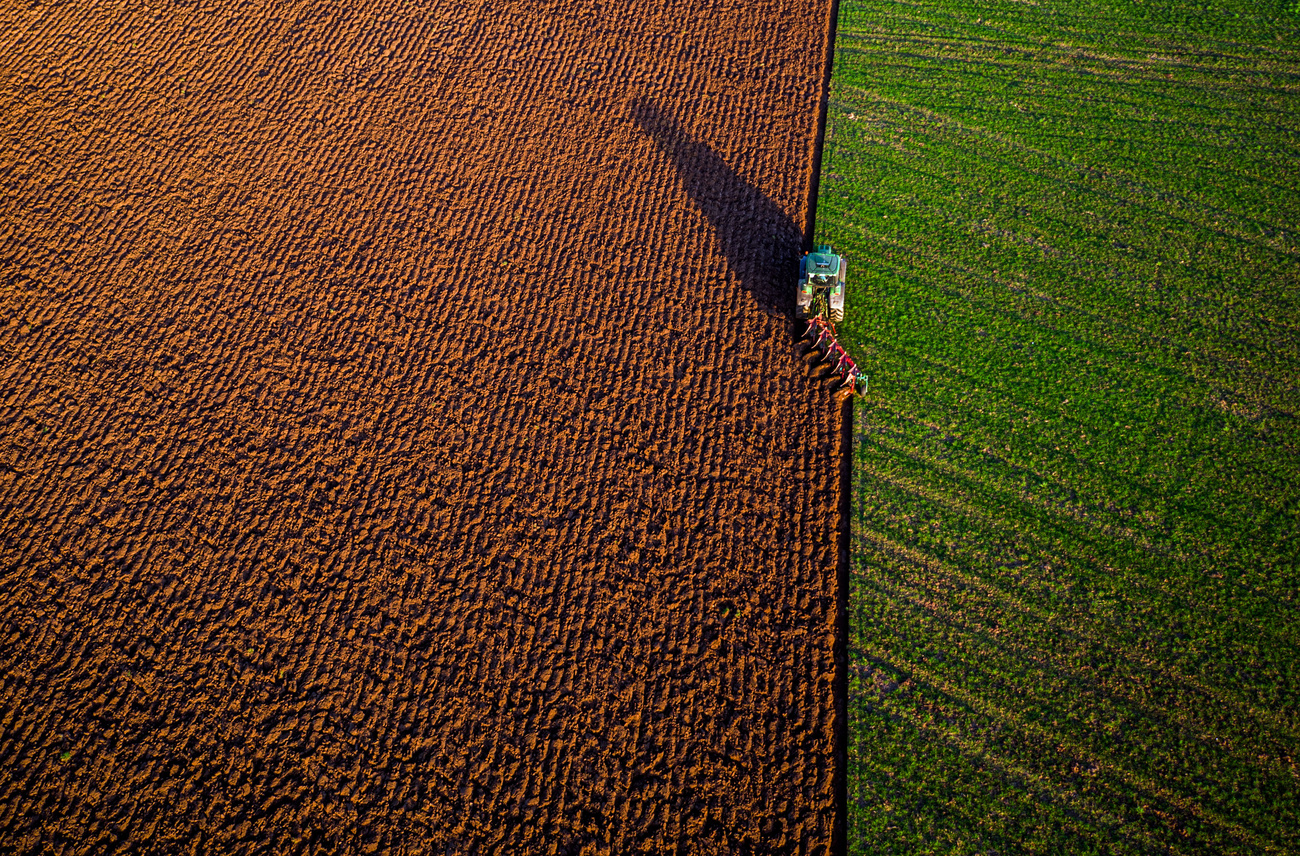
Stop organic farming to help future food crisis, says Syngenta boss

Erik Fyrwald, the CEO of the Swiss agrochemicals group Syngenta, has called for an end to organic farming to avoid a worsening food crisis. The president of the Swiss Small Farmers’ Association meanwhile dismissed his arguments as “grotesque”.
Rich countries should increase their agricultural production in order to prevent a global food crisis, Fyrwald told the NZZ am Sonntag newspaper in an interview on Sunday. Organic farming yields can be up to 50% lower than non-organic farming, depending on the product, he claimed.
“The indirect consequence is that people are starving in Africa because we are eating more and more organic products,” he told NZZ.
Organic farming requires more land and it is bad for the climate because the fields are usually ploughed, which increases CO2 emissions, he added.
Fyrwald said his opposition to organic farming was in no way linked to Syngenta’s business objectives. The Chinese-owned group produces pesticides and genetically modified (GM) seeds.
“The entire industry makes high profits with organic products because consumers are willing to pay a lot for it,” he declared. Fyrwald advocates a third way: so-called regenerative farming that uses crop rotation techniques from organic farming and the targeted use of pesticides and GMOs to increase yields.

More
Is 100% organic farming a revolution too far?
‘Grotesque’
Reacting to the interview, Kilian Baumann, a Bernese organic farmer and president of the Swiss Small Farmers’ Association, called Fyrwald’s arguments “grotesque”.
He said the Syngenta CEO was “fighting for sales” as farmers are using “fewer and fewer pesticides”.
“It’s not organic farming but our hunger for meat that promotes greater use of land. Animal feed is grown on 43% of Swiss arable land and we still import 1.2 million tonnes a year,” he wrote on Twitter.
The production of “animals calories” requires much more land than the production of “plant calories”, said Baumann.
Food insecurity
Almost 193 million people in 53 countries suffered acute food insecurity in 2021 due to what the United Nations said was a “toxic triple combination” of conflict, weather extremes and the economic effects of the coronavirus pandemic.
The war in Ukraine poses further risks for many countries, especially in Africa, which rely on Ukraine and Russia for wheat, fertilizer and other food supplies.
Even before the war, people were dealing with the consequences of the pandemic and reduced incomes, and food prices were at a 10-year high and fuel prices were at a seven-year high.

In compliance with the JTI standards
More: SWI swissinfo.ch certified by the Journalism Trust Initiative















![The four-metre-long painting "Sonntag der Bergbauern" [Sunday of the Mountain Farmers, 1923-24/26] had to be removed by a crane from the German Chancellery in Berlin for the exhibition in Bern.](https://www.swissinfo.ch/content/wp-content/uploads/sites/13/2025/12/01_Pressebild_KirchnerxKirchner.jpg?ver=f05a5a9c)














You can find an overview of ongoing debates with our journalists here . Please join us!
If you want to start a conversation about a topic raised in this article or want to report factual errors, email us at english@swissinfo.ch.